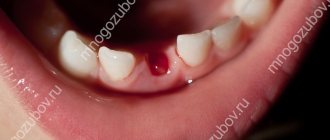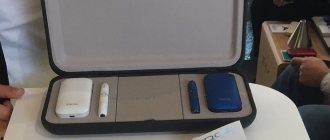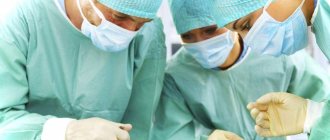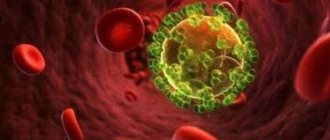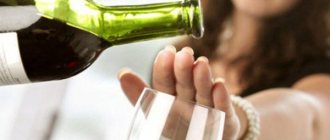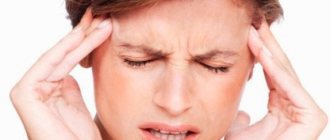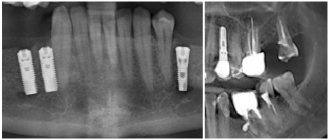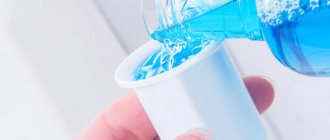Is it possible to smoke after filling a tooth? This is a question that worries every heavy smoker.
Many people, upon leaving the dentist, immediately light a cigarette without thinking.
As a result, negative reactions occur in the oral cavity that can ruin the effect of prosthetics.
Is it possible to smoke after tooth extraction?
Smoker's teeth
Use search
Are you having any problem? Need more information? Type in the form and press Enter!
Why you shouldn't smoke after filling a tooth
During the treatment, tooth enamel is damaged. The negative effect of nicotine substances on the damaged area slows down the regeneration of dental tissues and increases recovery time. Dental tissues recover more slowly than in cases without the influence of harmful elements.
In addition, nicotine may react with materials, resulting in adverse effects on the components. Nicotine has a greater harmful effect on the temporary filling, which subsequently leads to loss.
In addition to nicotine, tars have a bad effect on periodontal tissues, especially after anesthesia.
When filling with cement materials, you must not eat food and abstain from cigarettes for a period of up to 3 hours. A time limit is assigned due to the gradual hardening of materials.
When eating food or tobacco, an active process of salivation occurs, which ultimately leads to a deterioration in the hardening process of the ingredients and a decrease in adhesion to dental tissues.
After treatment, dentists advise:
- Do not eat overly sour or sweet foods;
- Avoid sudden changes in temperature in the mouth;
- Do not smoke or rinse your mouth with solutions that contain alcohol.
To eliminate the negative effects of nicotine, tar, and harmful substances released, dentists recommend eliminating cigarette smoking for a day.
Take the Attention Test! Find 10 differences! (click right here!)
Test for smokers
Is it possible to smoke after having a permanent filling installed?
Any operations with hard dental tissues injure dentin. It takes a lot of time to restore dentin cells - odontoblasts. During this recovery period, the filled tooth may hurt and react to various external stimuli.
Therefore, experts recommend:
- Avoid eating excessively sweet or sour foods;
- minimize temperature changes in the oral cavity;
- Limit smoking and rinsing your mouth with alcohol solutions.
Old painted fillings and replacement with modern ones
Smoking reduces the regenerative function of odontoblasts and impairs tissue trophism, so the process of cell restoration is slower. And in the stable film that forms on the teeth during smoking, a large number of pathogenic microorganisms multiply, which, if the dental filling does not fit tightly, can provoke the appearance of secondary caries.
If the patient has the opportunity to quit smoking for a while, then it is better to take advantage of it.
But if the patient cannot resist the addiction, then it is worth checking with a specialist what material is used, and then make a decision.
How long after you can smoke after filling a tooth with a light filling?
Once installed, the light seal (treated with a UV lamp) can absorb ingredients from food and tobacco smoke.
This is more noticeable on the front teeth, where photopolymer materials are used. In order not to spoil the result of prosthetics and restoration of tooth enamel, it is advisable to refrain from using tobacco products for one to two days.
In addition to giving up tobacco, you should refrain from drinking drinks and food with dyes.
If the recommendations for limiting smoking and eating foods are not followed, the guarantee for the light seal will not be valid in the future.
If the appearance of the installed materials is not important to the patient, then you can continue to smoke - the light components are not subject to damage due to the action of smoke and harmful elements of tobacco.
Everything will depend on the components used in dental treatment and on the application of prosthetic technology.
Take the smoking test
conclusions
After installing a permanent filling, smoking is not recommended for the first 2-3 hours, nor is it recommended to consume food or liquid. Smoking in this case means not only smoking regular cigarettes, but also electronic cigarettes and hookahs.
Attention!
When installing fillings made of high-quality photopolymer materials, it is not necessary to refrain from smoking after the procedure. Tobacco smoke does not have a negative effect on photopolymer materials. But it is better to abstain from coloring foods for 2-3 days.
Consequences of smoking immediately after filling
As a result of smoking after filling, darkening of the restored crown and aching pain may occur. In addition, the mucous membrane of the mouth is exposed to tobacco smoke: in addition to harmful substances, the mucous membrane is exposed to thermal effects due to the use of cigarettes.
These factors contribute to the emergence of various complications:
- Bleeding, inflammation, pus formation.
- Education, further increase in infection.
- Tumor formation.
Due to the influence of high-temperature smoke, inflammation occurs, which contributes to further cyst formation. The formation of a cyst occurs in diseases of the salivary glands, but the risk of infection of an open damaged surface when smoking increases.
After installing a filling, whether light or temporary, you should consult with your dentist about diet and smoking.
Is it possible to smoke after anesthesia at the dentist?
Smoking is a harmful habit that is quite difficult to get rid of. Cigarettes, and especially the substances they contain, have a negative effect on the body as a whole. The vessels narrow, the cells receive little oxygen and nutrients.
But the first place nicotine encounters is the oral cavity. All substances begin to be absorbed into the mucous membrane and also affect the tooth enamel. You can harm yourself even more if you start smoking immediately after filling a tooth.
Below we will look in more detail at whether it is possible to smoke after filling and dental treatment.
Why don't doctors allow smoking?
Tooth extraction is a surgical procedure. The level of dental services is excellent. There is no need to endure pain or discomfort - the dentist has effective anesthetic drugs in stock. At this stage, the patient will be required to wait until the anesthesia takes effect.
Since the pain has been reduced to zero, you should not put off going to the doctor. If a tooth is destroyed or rots, it should be removed without delaying the event.
The operation requires a responsible approach to its implementation and subsequent rehabilitation. To avoid possible complications during the recovery stage, you must follow the dentist's instructions.
Doctors do not allow smoking after tooth extraction - the ban is justified. Cigarette smoke contains substances of chemical origin.
When smoking, smoke envelops the oral cavity, entering the wound. Healing occurs more slowly or stops altogether. There is a risk of bleeding.
Alcoholic drinks after surgery
Medicines are eliminated from the body after a certain time. During the first day - the main part of the medicine, and over the next days or weeks the residual concentration of the anesthetic substance. The elimination period depends on the type of anesthetic and dosage, as well as the condition of the body. Therefore, drinking alcohol within a short period of time after anesthesia or local anesthesia is not recommended.
Beer contains an average of 5% alcohol, but is also a product that causes fermentation, which complicates the healing of postoperative wounds. Even low-alcohol drinks have a stronger effect on the body after anesthesia, since low concentrations of alcohol adversely affect the weakened body during rehabilitation. Therefore, it is not recommended to drink beer while the body is recovering after surgery.
Under the influence of alcohol, blood has low coagulability. This causes bleeding that is difficult to stop. In some cases, bleeding is fatal.
During the postoperative period, alcohol is strictly prohibited!
After surgery, the attending physician most often prescribes antibiotics to the patient. Alcohol should not be drunk during antibiotic therapy for a certain group of drugs, as it can cause a disulfiram-like reaction.
Such patients exhibit symptoms such as:
- severe headache
- spasms of the upper and lower extremities,
- tachycardia,
- feelings of heat in the chest, face and neck,
- nausea,
- heavy and intermittent breathing.
You should ask your doctor about when you can drink alcohol after surgery. After all, everyone’s recovery time is different.
The concentration of alcohol in the blood when drinking beer and wine depends on the amount drunk. But it is worth remembering that even a small dose of alcohol can increase the risk of complications after anesthesia (local, general) or increase the recovery time for an operated patient.
How long does it take to return to a bad habit?
How soon can you smoke after tooth extraction? For most people, going to the dentist is stressful. Smokers cope with such situations with the help of cigarettes. Having heard from the doctor that smoking is prohibited after surgery, the main question will be the time frame of the ban.
The minimum time during which you cannot smoke is 2 hours. If bleeding does not stop after the second hour, smoking is not recommended until it stops completely.
If the rule is neglected, a dry socket develops at the wound site. This threatens infection and the development of an inflammatory process.
If stitches were required, the moratorium on cigarettes is extended for a period of 2 to 10 days. Ten days are considered the optimal time. During this period, the wound heals and the sutures dissolve.
When can you smoke in different cases after treatment?
Stay up to date! Smoking affects tissue function and impairs regenerative function.
The recovery process is reduced, and a film with pathogenic microorganisms forms on the enamel. They cause secondary caries.
Now every second person turns to a dentist for help to have a tooth filled.
Smokers are not left out. Such people always have one question: “Can I smoke after filling a tooth and how long after can I light a cigarette?”
If the patient cannot resist this habit, then it is necessary to check with the doctor what material is used.
After cement filling
Cement-based material is cheap and short-lived.
For your information! It takes a very long time to harden and will not be able to prevent a new outbreak of caries. It is not recommended to smoke for about five hours.
Temporary plastic filling
Material prone to causing inflammation of the gums. In addition, it shrinks quickly and at the same time affects the shape and color of teeth during eating and smoking.
It is best to refrain from smoking for three hours, although in any case the fillings will lose their appearance.
Photopolymers (light fillings)
Photopolymer fillings are exposed to a special ultraviolet lamp to harden them.
Thanks to this treatment, you can eat and smoke immediately after rising from the dental chair.
Amalgam filling (metal filling)
You should know! This material is used very rarely, as it is toxic. Amalgam is made by mixing mercury and metal.
It is better to stop smoking after filling for a couple of hours to allow the tissues to recover.
Nicotine affects the degree of healing, so with any filling it is not recommended to smoke during the day.
When can you smoke?
Removing each tooth will require qualifications and skill from the doctor. If we are talking about pulling out wisdom teeth, the greatest skill will be required.
Difficulties arise during the operation:
- The root is wide or curved;
- Large tooth sizes;
- Removal in small parts.
In case of severe damage, teeth are removed in parts. The dentist gives recommendations that must be followed to avoid complications.
After tearing it out, a wound remains. A swab soaked in an antiseptic is placed on the wound. This is necessary for blood clotting. The tampon remains in the mouth for fifteen to 20 minutes.
After time has passed, the tampon is removed. It must be removed carefully, trying not to damage the blood clot formed on the wound. The clot helps the wound heal.
To avoid infection, the patient is prescribed antibiotics. It is impossible to combine taking antibiotics and cigarettes without risk to health. If a person suffering from heart disease has undergone surgery, then taking antibiotics and smoking are prohibited.
After removal, it is better not to smoke until the wound heals. If it is difficult for a smoker to hold out for this time, smoking should be postponed for at least 2 hours, provided there is no bleeding. When stitches are applied to the wound, the period increases to 10 days.
Therapeutic measures
After a tooth is removed, an open bleeding wound remains in its place. If a wisdom tooth is removed, a large wound remains in its place. To stop the bleeding, the dentist covers the wound with a cotton swab soaked in a medical solution, which should be removed after 20 minutes. After removing the cotton wool, a small blood clot forms in the hole of the missing tooth, which absolutely cannot be removed. This clot is a guarantee of bone tissue regeneration and promotes rapid healing of a fresh wound.
Do not try to remove a blood clot from the socket: it is necessary for rapid tissue regeneration.
The dentist will treat the hole with a healing composition, and after the removal of wisdom teeth, you are required to take a course of antibiotics. But antibiotics are not prescribed in all cases, but only if a molar with curved or heavily overgrown roots was operated on.
When a large diameter wound surface is formed, sutures may be applied. In this case, the first puff can be done only 2 or 7 days after this procedure. It all depends on the ability of tissues to recover. During the specified period, the sutures will heal, and the doctor will remove the surgical threads.
Yellow teeth from chifir and cigarettes
Why do teeth turn yellow from chifir and cigarettes? Using chifir along with nicotine can aggravate the problem of yellow teeth. The consequences of consuming chifir are a strong coloring effect.
Tea contains a substance called tannic acid, which gives it its dark color. When teeth have grooves, tannic acid will settle into them, causing discoloration over time.
With a large amount of tea leaves in chifir, the teeth turn yellow, black, and possibly tooth loss.
Special toothpaste is not the solution. Due to its high abrasive ability, this paste cannot be used constantly; it wears away the enamel.
Share with friends or Save for yourself!
4.5 / 5 ( 46 votes)
Smoking and temporary fillings
This type of filling is temporary. It is used in the process of intermediate treatment of a tooth before a permanent filling is installed on it. Temporary filling protects exposed nerves and saves the tooth from further destruction and inflammation.
The essence of temporary filling
When installing a temporary filling, eating and drinking are allowed no earlier than 2-3 hours after the procedure.
But you can smoke immediately with a temporary filling. Such a restriction, as in the case of permanent filling, does not apply to temporary filling. After all, after 5-7 days the temporary filling will be replaced with a permanent one. And then some restrictions on cigarette consumption come into force.
The only thing worth doing is to rinse your mouth thoroughly after each smoking. It is better to use special rinses designed to care for the smoker’s mouth:
- Listerine;
- Colgate Plax;
- Splat ACTIVE;
- Albadent B-017;
- Zact Smokers Lion.
Smoking and drinking alcohol after anesthesia
For general or local anesthesia, anesthetic drugs are used. All medications have a number of side effects. To reduce the risk of complications, it is important to adhere to the rules recommended by the anesthesiologist.
Nicotine and alcohol are incompatible with anesthetics. They can affect the course of anesthesia in different ways. In some cases, the anesthetic medicine will have a weak effect on the body, but may enhance the effect of anesthesia.
After surgery, some patients do not know whether it is possible to smoke (ordinary cigarettes or electronic cigarettes, hookah), drink alcohol (beer, wine, etc.)? And how soon can I use it?
You should talk to your doctor about your lifestyle after surgery.
